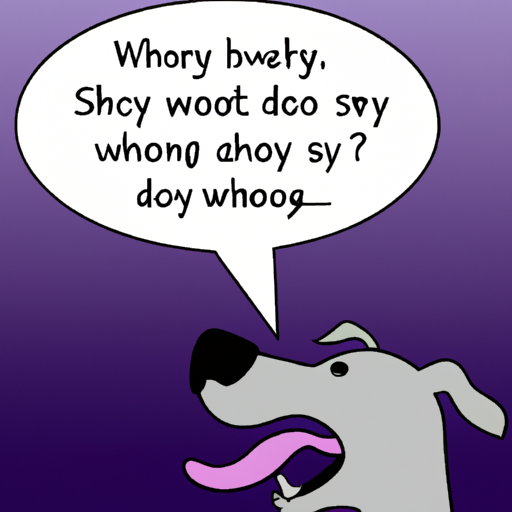An Introduction to Canine Yawning
You might have noticed that your dog yawns a lot, and you’re probably wondering why. Just like humans, dogs yawn for a variety of reasons. However, it’s not always because they’re tired. Yawning in dogs can be a form of communication, a response to stress, or a symptom of a health issue.
Understanding Canine Communication
Dogs yawn a lot more than we might think. Unlike humans, yawning in dogs doesn’t always mean they’re tired. In fact, it can often be a form of communication.
- Calming signal: Dogs often yawn in situations that make them uncomfortable. It’s their way of saying, “I’m not a threat.”
- Expression of empathy: Some studies suggest that dogs yawn in response to human yawns, showing that they can empathize with us.
- Play invitation: Dogs sometimes yawn to invite their human or canine friends to play.
As a caregiver, understanding these signals can greatly improve your communication with your furry friend.
The Link Between Yawning and Stress
Sometimes, dogs yawn as a response to stress. This is known as a displacement behavior. Displacement behaviors are normal behaviors displayed out of context. They occur when dogs are conflicted about something or when they’re stressed.
Here are some signs that your dog’s yawns might be stress-related:
- The yawns occur during stressful situations
- They’re accompanied by other stress signals, like licking lips or avoiding eye contact
- The yawns are excessively long or frequent
If you notice any of these signs, try to identify and eliminate the source of stress.
Health Concerns Associated with Excessive Yawning
Excessive yawning can also be a symptom of certain health issues. If your dog yawns excessively and displays other symptoms like lethargy, loss of appetite, or behavioral changes, it’s important to consult a vet.
| Possible Health Issue | Other Symptoms |
|---|---|
| Dental or oral problems | Bad breath, drooling, difficulty eating |
| Respiratory problems | Coughing, wheezing, difficulty breathing |
| Central nervous system disorders | Seizures, balance problems, changes in behavior or consciousness |
How to Respond to Your Dog’s Yawning
As a caregiver, your dog’s well-being is your priority. If you notice that your dog is yawning excessively, don’t panic. Try to identify the cause. Is it a communication signal? Is your dog stressed? Or could it be a health issue? Once you’ve identified the cause, you can take the necessary steps to address it.
Remember, when in doubt, always consult a vet. Your vet can help you understand your dog’s yawning and provide appropriate solutions.
FAQ
Q: Can dogs fake yawns?
A: It’s unlikely. While dogs use yawns as a form of communication, there’s no evidence to suggest that they can fake yawns.
Q: Are certain breeds more prone to yawning?
A: There’s no concrete evidence to suggest that certain breeds yawn more than others.
Q: Does my dog yawn because he’s bored?
A: Possibly. Dogs might yawn out of boredom, just like humans do.
Q: Should I be worried if my dog yawns a lot?
A: Not necessarily. Yawning is a normal behavior for dogs. However, if the yawning is excessive or accompanied by other symptoms, it’s a good idea to consult a vet.



